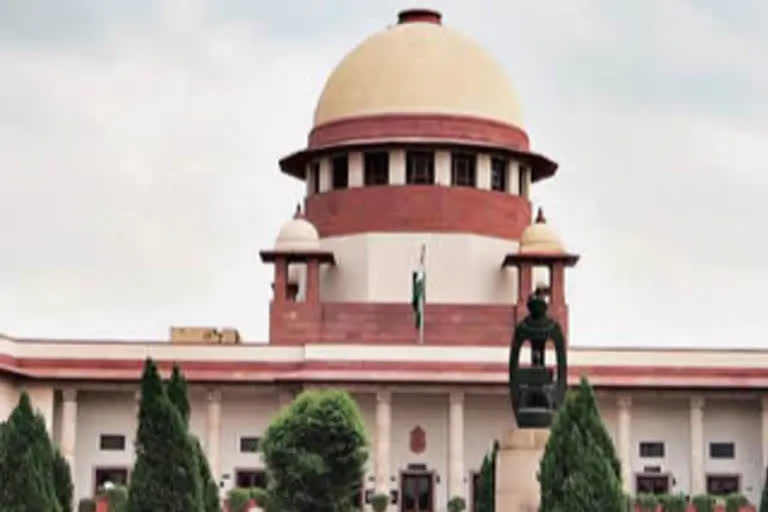New Delhi: The Supreme Court Thursday said compensation or penalty to be paid by those indulging in illegal sand mining cannot be restricted to the value of illegally-mined minerals.
A bench of Justices L Nageswara Rao, Sanjiv Khanna, and B R Gavai made the observation in a judgement on a plea by the Rajasthan government against recommendations made by the Central Empowered Committee (CEC).
The CEC had recommended a penalty of Rs 10 lakh per vehicle and Rs five lakhs per cubic metre of sand seized in addition to what has already been ordered/collected by the State agencies.
"Compensation/penalty to be paid by those indulging in illegal sand mining cannot be restricted to the value of illegally-mined minerals. The cost of restoration of the environment, as well as the cost of ecological services, should be part of the compensation.
"The Polluter Pays principle, as interpreted by this Court, means that the absolute liability for harm to the environment extends not only to compensate the victims of pollution but also the cost of restoring the environmental degradation. Remediation of the damaged environment is part of the process of 'Sustainable Development' and as such the polluter is liable to pay the cost to the individual sufferers as well as the cost of reversing the damaged ecology," the bench said.
The top court said the damage caused to the environment due to rampant unscientific illegal mining needs no reiteration.
"Unabated illegal mining has resulted in the emergence of the sand mafia who have been conducting illegal mining in the manner of organized criminal activities and have been involved in brutal attacks against members of local communities, enforcement officials, reporters, and social activists for objecting to unlawful sand excavation," the bench said.
The apex court said that the statistics provided by the Rajasthan government highlights the magnitude of the problem as about 2,411 FIRs have been registered concerning illegal mining in the State of Rajasthan, between November 16, 2017, and January 30, 2020.
The bench said when this Court has restrained 82 mining lease/quarry holders from carrying on mining of sand and bajri (construction sand) unless a scientific replenishment study is completed and EC is issued by the MoEFCC, the State of Rajasthan ought not to have issued mining leases in favour of the 'Khatedars' (a person whose name is included in the revenue records of the parcel of land under reference.).
The bench said it is clear from the report of the CEC that the majority of the 'Khatedari' leases are within 100 metres from the river bed.
"The 2020 Sand Mining Guidelines prescribe that the mining plan for mining leases on Khatedari lands shall only be approved if there is a possibility of replenishment of the mineral or when there is no possibility of river bed mining within 5 km of the patta land/Khatedari land.
"Agreeing with the CEC's conclusions on the issue of mining leases in Khatedari lands facilitating legalisation of transportation and sale of illegally extracted sand, we approve the recommendation of the CEC that all Khatedari leases which are located within 5 km from the river bed and those leases where lease conditions have been violated have to be terminated forthwith and that Khatedari leases shall be granted only with the permission of this court," the bench said.
The apex court said the penalty recommended by the CEC for illegal sand mining is in addition to the penalty that can be imposed by the State
Government in terms of Section 21(5) of the Mines and Mineral (Development and Regulation) Act.
"However, the basis for imposition of an exemplary penalty of Rs. 10 lakh per vehicle and Rs. 5 lakh per cubic metre of sand has not been stated by the CEC in its report.
"The CEC is directed to follow the directions given by the NGT in respect of imposition of penalty/determining the scale of compensation for illegal mining and the provisions of the 2020 Sand Mining Guidelines and determine the penalty/compensation afresh and submit a report to this Court within a period of eight weeks from today," the bench said.
Also read: Punjab CM Channi announces 'Mission Clean' to curb sand mining, liquor, drug trade
PTI



